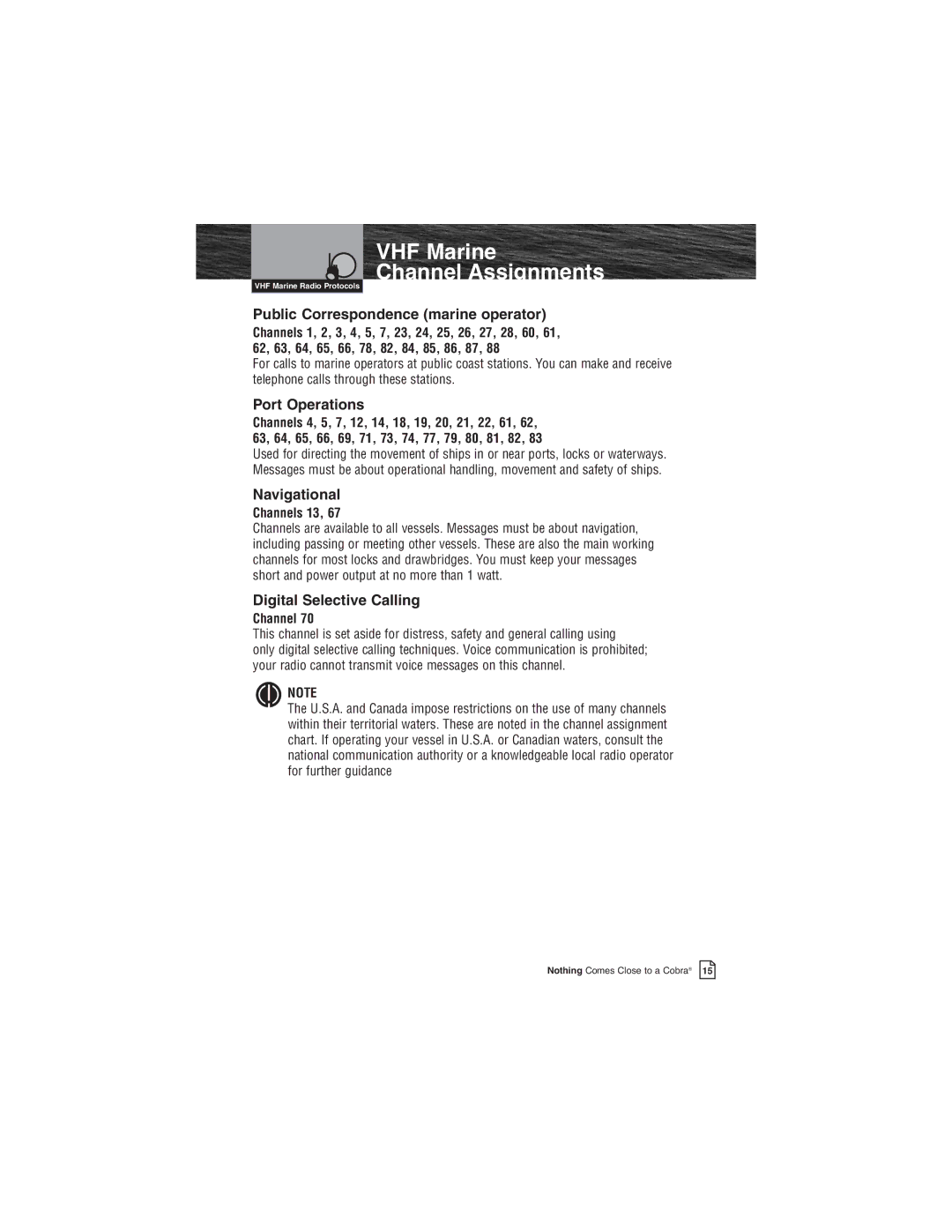
VHF Marine Radio Protocols
VHF Marine
Channel Assignments
Public Correspondence (marine operator)
Channels 1, 2, 3, 4, 5, 7, 23, 24, 25, 26, 27, 28, 60, 61, 62, 63, 64, 65, 66, 78, 82, 84, 85, 86, 87, 88
For calls to marine operators at public coast stations. You can make and receive telephone calls through these stations.
Port Operations
Channels 4, 5, 7, 12, 14, 18, 19, 20, 21, 22, 61, 62, 63, 64, 65, 66, 69, 71, 73, 74, 77, 79, 80, 81, 82, 83
Used for directing the movement of ships in or near ports, locks or waterways. Messages must be about operational handling, movement and safety of ships.
Navigational
Channels 13, 67
Channels are available to all vessels. Messages must be about navigation, including passing or meeting other vessels. These are also the main working channels for most locks and drawbridges. You must keep your messages short and power output at no more than 1 watt.
Digital Selective Calling
Channel 70
This channel is set aside for distress, safety and general calling using
only digital selective calling techniques. Voice communication is prohibited; your radio cannot transmit voice messages on this channel.
NOTE
The U.S.A. and Canada impose restrictions on the use of many channels within their territorial waters. These are noted in the channel assignment chart. If operating your vessel in U.S.A. or Canadian waters, consult the national communication authority or a knowledgeable local radio operator for further guidance
Nothing Comes Close to a Cobra® 15
